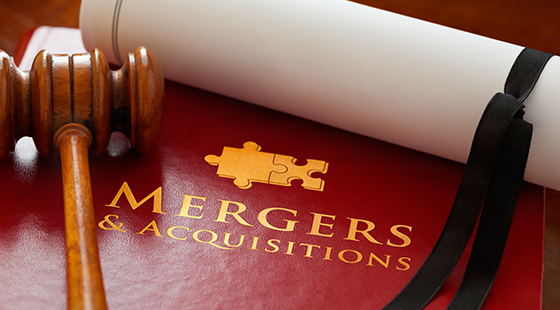
FTC announces annual adjustments to the HSR filing thresholds and Interlocking Directorates
By Tod Northman
The minimum dollar thresholds under Section 7(A) of the Hart-Scott-Rodino Antitrust Improvements Act of 1976, as amended, and its rules and regulations (the HSR Act) will increase approximately 6.6% over the 2018 thresholds on April 3, 2019 (30 days after the date of their publication in the Federal Register). The thresholds determine, among other things, whether companies are required to notify federal antitrust authorities before consummating a transaction.
Size of Transaction Test
The HSR Act “size of transaction” threshold will increase from $84.4 million to $90 million. Transactions in which the acquiring party will hold voting securities, non-corporate interests, or assets valued above $90 million (as determined under the HSR Act’s rules and regulations) may require a pre-merger notification if the “size of parties” test is also satisfied and no HSR Act exemptions are applicable. For the acquisition of voting securities, if the threshold is satisfied, filing is required whether or not the acquirer ends up with a controlling interest. The closing date of the transaction determines which threshold applies.
Size of Parties Test
For transactions valued at $90 million or more but less than $359.9 million (up from $337.6 million in 2018), the “size of parties” thresholds will also increase. Generally, the ultimate parent entity of one party to the transaction must have annual net sales or total assets of at least $180 million (up from $168.8 million) and the ultimate parent entity of the other party must have annual net sales or total assets of at least $18 million (up from $16.9 million). Transactions valued at $359.9 million or more (up from $337.6 million) must be reported regardless of the size of parties involved in the transaction, unless an exemption applies.
The Federal Trade Commission (FTC) is required by law to revise these jurisdictional HSR Act thresholds annually as of the end of January based upon the change in gross national product; however, the revisions were delayed by the budget shutdown. The HSR Act requires companies of a certain size involved in a transaction that exceeds the filing thresholds to file a pre-merger notification with the FTC and Department of Justice and observe a waiting period unless an HSR Act exemption applies.
The applicable HSR Act filing fees will not increase: a $45,000 filing fee for transactions valued at $90 million to less than $180 million; a $125,000 filing fee for transactions valued at $180 million to less than $899.8 million; and a $280,000 filing fee for transactions valued at $899.8 million or more.
Bear in mind that in addition to analyzing the HSR dollar thresholds, other factors can result in a transaction being reportable to the Pre-Merger Notification Office (PNO). Failure to notify the PNO under the HSR Act is subject to a statutory penalty of up to $41,484 for each day of violation (the maximum daily civil penalties for noncompliance did not change).
Interlocking Directorates Thresholds Change
Section 8 of the Clayton Act prohibits one person from simultaneously serving as an officer or director of two corporations if: (1) the “interlocked” corporations each have combined capital, surplus, and undivided profits of more than $36,564,000 (up from $34,395,000); (2) each corporation is engaged in whole or in part in commerce; and (3) the corporations are “by virtue of their business and location of operation, competitors, so that the elimination of competition by agreement between them would constitute a violation of any of the antitrust laws.”
Section 8 provides several exemptions from the prohibition on interlocks for arrangements where the competitive overlaps “are too small to have competitive significance in the vast majority of situations.” After the revised thresholds take effect, a corporate interlock does not violate the statute if: (1) the competitive sales of either corporation are less than $3,656,400 (up from $3,439,500); (2) the competitive sales of either corporation are less than 2 percent of that corporation’s total sales; or (3) the competitive sales of each corporation are less than 4 percent of that corporation’s total sales.
The revised dollar thresholds for interlocking directorates of $36,564,000 and $3,656,400 were effective on March 4, the date of publication in the Federal Register; there is no 30-day delay as there is for the HSR thresholds.